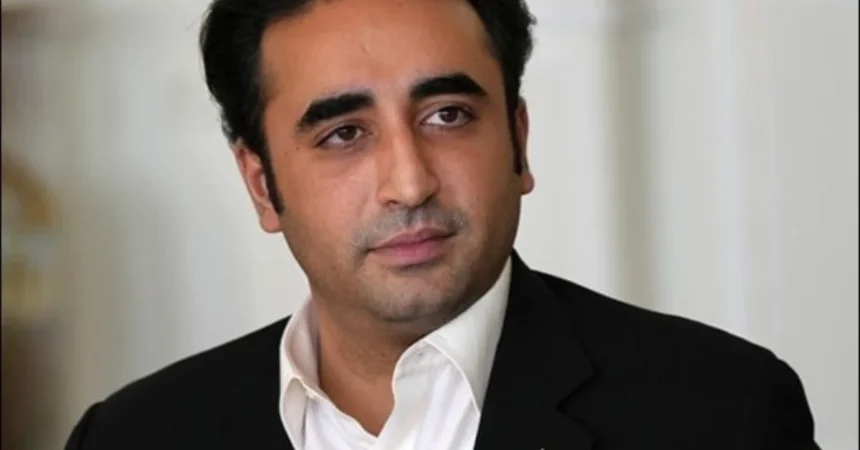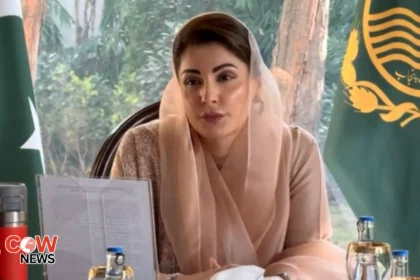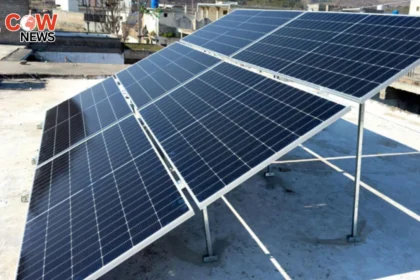In recent political developments, Bilawal Bhutto Zardari, the chairman of the Pakistan Peoples Party (PPP), has taken significant steps to pacify Nawaz Sharif, the leader of the Pakistan Muslim League-Nawaz (PML-N). This diplomatic overture comes on the heels of a series of contentious statements exchanged between the two leaders, reflecting the ongoing tensions within the Pakistani political landscape. Bilawal’s initiative is a clear indication of his recognition of the need for unity among political factions, especially in the face of pressing national challenges.
The Political Context
The political environment in Pakistan has been fraught with volatility in recent years. With the ousting of former Prime Minister Imran Khan, the subsequent rise of the coalition government led by the PML-N, and the ever-present challenges of governance, political leaders have found themselves navigating a complex landscape. The animosity between the PPP and PML-N has historically been a defining feature of Pakistani politics, often leading to gridlock and inefficiency in addressing key national issues.
Bilawal’s recent overtures towards Nawaz Sharif signify a strategic pivot. Understanding that a united front among major political parties could be essential for effective governance, Bilawal’s moves are aimed at fostering a more cooperative political climate. This is particularly crucial as Pakistan faces pressing economic issues, social unrest, and security challenges.
Recent Tensions Between Bilawal and Nawaz
The tensions between Bilawal and Nawaz have roots in both ideological differences and personal rivalries. The PPP and PML-N have historically vied for power in Punjab, Pakistan’s most populous province, leading to a competitive and often antagonistic relationship. Recent statements from both leaders have only intensified this rivalry, culminating in accusations and counter-accusations.
Bilawal’s criticisms of the PML-N government’s performance have often been pointed, reflecting the frustrations of PPP supporters who feel sidelined in a political landscape dominated by the PML-N. Conversely, Nawaz has also taken jabs at the PPP, questioning its commitment to the democratic process and governance.
Bilawal’s Diplomatic Strategy
Recognizing the detrimental impact of ongoing tensions, Bilawal has embarked on a diplomatic strategy aimed at reconciling differences with Nawaz. This approach encompasses several key components:
- Public Outreach: Bilawal has publicly acknowledged the need for dialogue with Nawaz, framing it as essential for the stability of the political landscape. This public acknowledgment serves to de-escalate tensions and open avenues for constructive discussions.
- Coalition Building: Understanding the power dynamics at play, Bilawal is advocating for a more collaborative approach to governance among opposition parties. This involves building coalitions not just between the PPP and PML-N but also involving other parties to create a unified front that can effectively address national challenges.
- Focus on Common Goals: In his interactions with Nawaz, Bilawal has emphasized shared objectives, such as economic stability, social justice, and strengthening democratic institutions. By highlighting these common goals, he seeks to foster a spirit of cooperation that transcends party lines.
Implications for Pakistan’s Political Landscape
Bilawal’s diplomatic overtures could have far-reaching implications for Pakistan’s political landscape. If successful, this approach could pave the way for a more collaborative environment among major political parties. Here are some potential outcomes of this initiative:
- Enhanced Governance: A united political front can facilitate more effective governance, enabling parties to work together in addressing pressing issues such as economic challenges, inflation, and security threats. This could lead to more comprehensive and cohesive policy-making.
- Stability in Coalition Governments: The ability of parties to cooperate and communicate effectively can strengthen coalition governments, reducing the risk of political instability that often arises from intra-party conflicts. This stability can foster a more predictable political environment, which is essential for economic growth and foreign investment.
- Public Trust: A visible effort to bridge political divides can help restore public trust in the political system. When leaders demonstrate a willingness to cooperate for the greater good, it can enhance citizens’ confidence in their representatives and institutions.
Challenges Ahead
While Bilawal’s approach is commendable, several challenges lie ahead. The entrenched rivalries between the PPP and PML-N will not dissipate overnight, and there may be resistance from party loyalists who view collaboration as a betrayal of their political ideals. Additionally, external factors, such as economic pressures and security threats, may complicate efforts to maintain a united front.
Moreover, Nawaz Sharif’s ongoing legal battles and health issues could impact his ability to engage effectively in political dialogues. Bilawal’s efforts may need to be adapted to accommodate these complexities, ensuring that discussions remain productive and focused on mutual objectives.
The Role of Civil Society
Beyond political leaders, the role of civil society in facilitating dialogue and promoting unity cannot be understated. Activists, NGOs, and community leaders can play a pivotal role in bridging divides and fostering understanding among different political factions. Civil society can advocate for collaborative efforts, encouraging politicians to prioritize the nation’s interests over personal ambitions.
Moreover, grassroots movements can amplify the voices of citizens who are calling for more cooperation among political leaders. By creating platforms for dialogue and fostering inclusive discussions, civil society can contribute to a more harmonious political environment.
The Importance of Media
The media also plays a crucial role in shaping public perceptions and facilitating dialogue among political leaders. By providing a platform for discussions, interviews, and debates, media outlets can foster understanding and empathy among political figures. Responsible journalism that highlights constructive dialogues rather than sensationalized conflicts can contribute to a more informed electorate.
Bilawal’s efforts to engage with Nawaz Sharif should be covered thoughtfully by the media, focusing on the potential benefits of collaboration and the importance of unity in addressing national challenges. Positive coverage can reinforce the notion that political cooperation is essential for progress and stability.
Historical Precedents
Historically, there have been instances where political leaders in Pakistan have successfully set aside differences for the greater good. The coalition government formed after the 2008 elections, for example, brought together multiple parties to address the challenges facing the country at that time. This spirit of cooperation led to significant achievements, including the passage of crucial legislation and economic reforms.
Bilawal’s current efforts echo this historical precedent, demonstrating that collaboration is possible even among rivals. By learning from past experiences, leaders can draw inspiration and motivation to pursue a more unified approach to governance.
Future Prospects
As Bilawal continues his diplomatic outreach, the future of Pakistan’s political landscape remains uncertain but hopeful. If he can successfully foster a spirit of cooperation among major political parties, it could lead to a more stable and effective governance framework. This, in turn, would benefit the citizens of Pakistan, who are yearning for solutions to pressing issues.
Furthermore, Bilawal’s emphasis on dialogue and collaboration could set a positive example for future generations of political leaders. By prioritizing the nation’s interests over personal ambitions, new leaders can cultivate a culture of cooperation that transcends party lines.
A Path Forward
Bilawal Bhutto Zardari’s efforts to pacify Nawaz Sharif reflect a mature understanding of the complexities of Pakistani politics. By seeking collaboration and fostering dialogue, Bilawal is taking crucial steps towards a more united political front. This initiative could have lasting implications for governance in Pakistan, leading to enhanced stability, effective policy-making, and greater public trust.
The challenges ahead are significant, but the potential rewards of cooperation are immense. By prioritizing dialogue and collaboration, political leaders can create a more promising future for Pakistan—one where the focus remains on addressing the needs of the citizens and working collectively for the greater good. As the political landscape continues to evolve, Bilawal’s efforts may very well be the catalyst for a new era of cooperation in Pakistani politics.
#BilawalBhuttoZardari #NawazSharif #PakistaniPolitics #PoliticalUnity #PPP #PMLN #Governance #CoalitionPolitics #Dialogue #Pakistan







